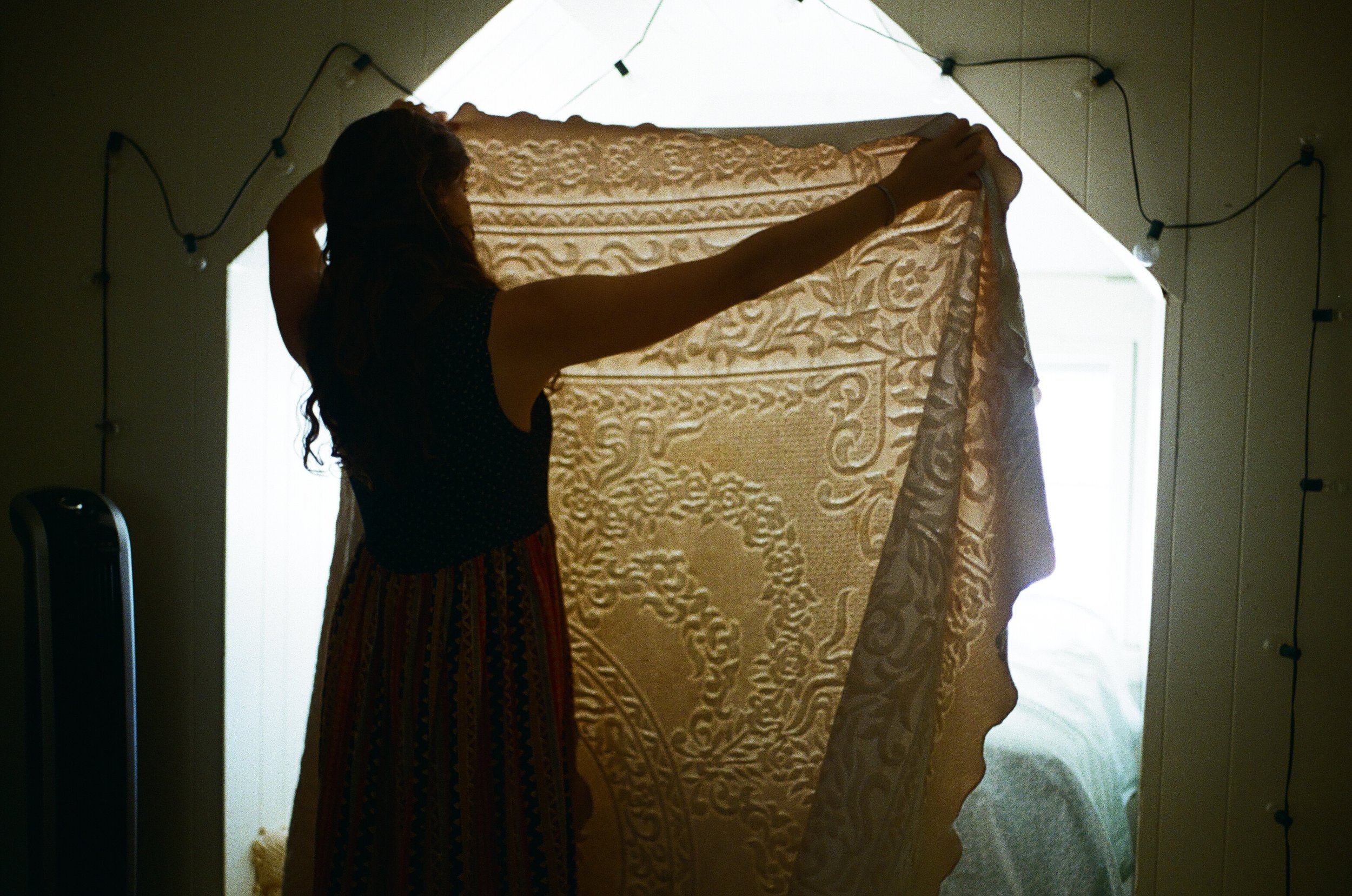Interview | Tori Sundberg
Tori Sundberg is a young, tough, tan, wild haired woman with a lot of beliefs and an easy smile.
We met in class a year or so ago. She’s very cool and collected and hilarious. She’s a person I feel comfortable getting philosophical with, going deeper, asking hard questions, and rummaging through what little answers we have. She’s an artist – photographer, sculptor, adventurer – and she’s honest. As a graduating senior, she has been faced with the daunting task of defining “work,” and she is in fact, the very reason I wanted to begin interviewing people who are doing things that they love to do, however hard, financially, physically, and/or emotionally, it may be.
“I really love people,” she began. We both felt slightly uncomfortable with a recorder going because it added a new element to our normal conversation, but after a few minutes we ignored the formality and fell into a simple dialogue. “My passion is just being with my people. That’s really what I brush my teeth to. I guess all of my passions kind of surround that. Creativity with my friends, well being, fostering a community, creating an organization that has a bigger story and even just something that brings fun.”
We decided to meet in a tiny, shotgun coffee shop on the west side of Nashville. I had only been there once before and Tori was with me, so it seemed to me to be our place - our little hole in the wall – and it is here that we’ve been able to dig into some difficult topics. “I’ve been struggling with this anxiety of what’s next for so long,” she said as we jumped into the mess that comes with deciding how to make money as a beginning artist. Like most recent grads, Tori has come up against this idea of having to label her life with a job description. It’s so difficult to truly live in and be with a state of unknowing and discovery when around ever corner there's a voice saying, define what you do, and define it now. “A lot of it was a dying of my pride,” she went on, “I could get a job right after college, I could find one that applies to my degree, I could just jump into this thing where I am valued and I am really big, I could do these things that are steady, but that’s just not for me right now. It’s been really humbling to kind of let go of these ideas and realize that’s where all of my anxiety is.”
As we began to move towards her process and discoveries in sculpture and photography, she continued to use language of community, humility, and human experience. “Photography was a surprise, I didn’t think I would like it this much - it’s so great because you’re recording a shared experience – most of my pictures are of my friends.” She focuses her pieces on movement, faces, bodies, groups, and a lot of times goofiness. “Whenever I get a photo idea, I won’t really write it down, I’ll just internalize it, picture it, and visualize it – it’s similar with sculpture except I normally have to draw it out and get the dimensions and stuff. Right now I’m thinking about what it would look like if I took a long exposure of a drier at a Laundromat,” she said and laughed as she picked up the almost empty mug. “But if I could have a dream for myself it would definitely be owning a produce stand. I think I could own it with a friend, and bring my concern and care for well being to a place that doesn’t have that. I’d love to double up as a charity of sorts – If I could just deliver a bag of lettuce carrots and tomatoes to every tenant in the edgehill community – done. I love it.” She pressed into this topic of health and nurturing a community with great confidence, and I started to connect the various things I knew about her and things that we had spoken about in the past, into this wonderful picture of vocation. “We need people to feel comfortable who aren’t familiar with that sort of life style – to come into a shop or come up to a truck and feel comfortable enough to ask honest questions. To be able to bring good food to a place that just doesn’t have that relationship with food is a really interesting idea to me. I still don’t know what I’m doing at all, but I love the earth and I love food and I love people, and I want everyone to be in good relations,” she said and laughed again, this time at her hippie lingo.
The room stood very still as we talked and drank and went off on tangents. The whole time there was a heavy peace in the air, not of full discovery or knowing, but of assurance in the unknown. After our coffee we went to her home and played with pups (just so happens one of her many talents is being an awesome dog sitter), laughed more, and lingered on the goodbye. Tori is an incredible picture of the mess that we all are as human beings – not just young human beings. There is something so beautiful about a person who sees different needs and understands their passions and talents in a way that can speak to those needs – no matter if they have a full proof business plan or just a chaotic journal of ideas and dreams.
















